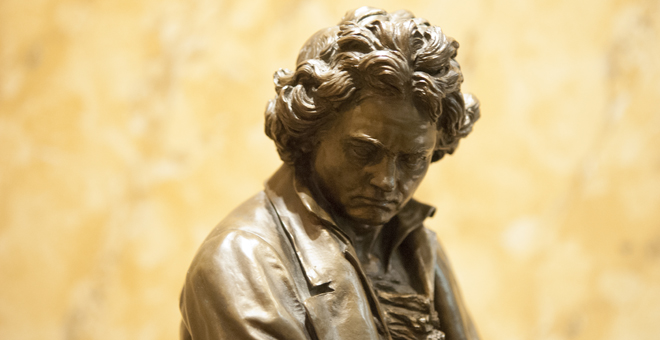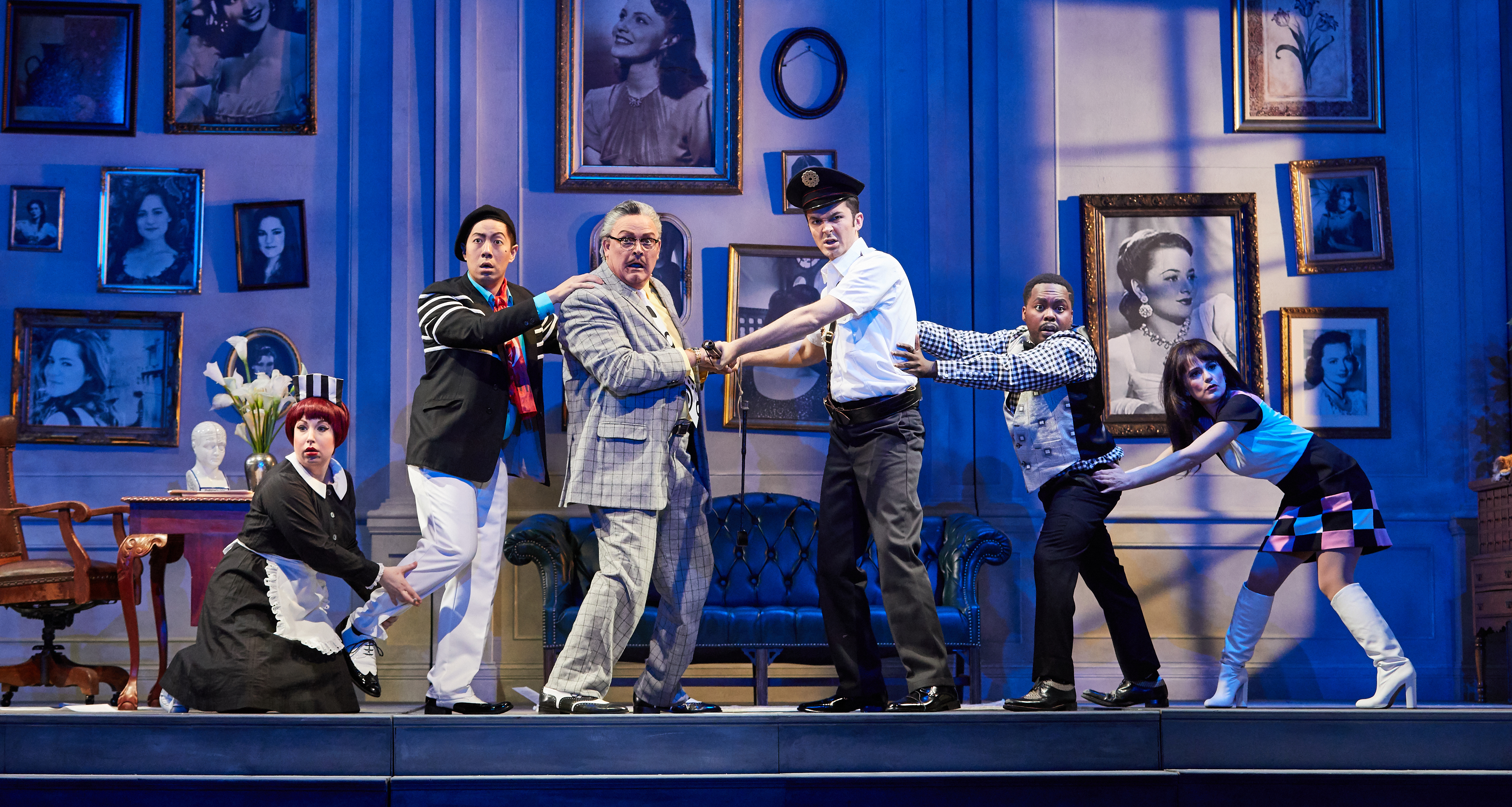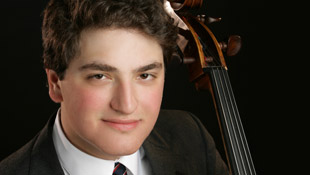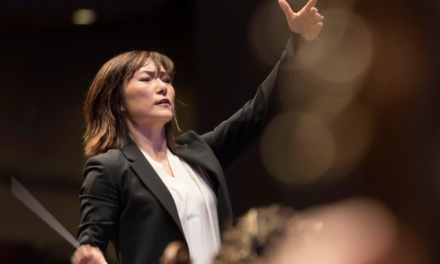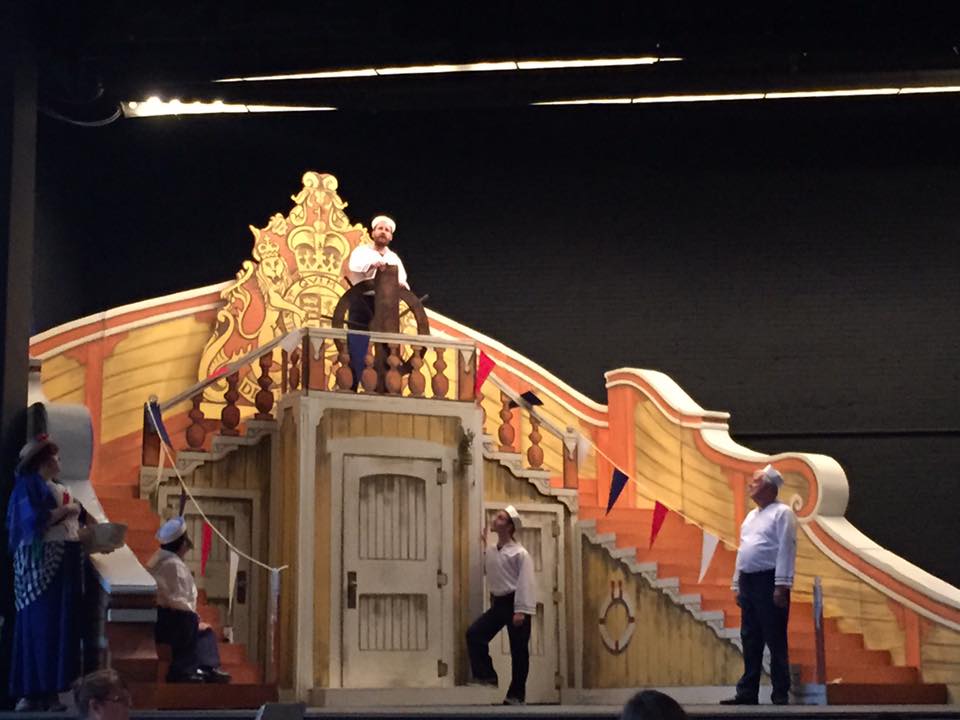Why Beethoven?
The Louisville Orchestra
Moderated and Directed by Teddy Abrams
Review by Annette Skaggs
Entire contents copyright © 2017 Annette Skaggs. All rights reserved.
I recently was sent a teaser headline by an acquaintance about Classical Music being on a decline and that no one really cares that it is. I have seen those words bandied around for years. Musical stylings, like stocks and investments, have moments of ups and downs. But, I am here to tell you, Classical Music is not going anywhere. How can I be so sure? Not to oversimplify the argument, which demands more opportunity than is afforded here, but the Louisville Orchestra’s performance titled Why Beethoven? certainly makes a good case against the decline of Classical Music.
There were many hints in social media and other promotions as to the unorthodox nature of the format for this concert. So, what made this evening’s performance so different? How about a 45-minute study into the development and structure of how Beethoven’s famed Seventh Symphony in A Major was composed, accompanied with musical cues along with stories and anecdotes about one of the most revered and appreciated composers in the history of music?
Abrams shared with the audience that attending a musical performance can be similar to looking at art work at a museum: you have a deep appreciation of its beauty but may not know anything more save for information placed beside a piece that was often painstakingly researched by a curator. Our conductor decided that through this evening’s ‘show and tell’ he would share with the audience a way that we can appreciate Beethoven’s Seventh Symphony on a deeper level, by exploring, and perhaps demystifying, the language of music. Even stating, tongue in cheek, that musicians often don’t know the language themselves.
While I braced for post-traumatic memories of my days in music theory I was absolutely enthralled with how Abrams shared and demonstrated the complexities of Beethoven’s composition. The evening was certainly akin to a mini theory or composition class, but it held my attention and often a side story would yield hearty laughs from the audience and myself.
The lesson began with the playing of the first chord, A Major. Our teacher then asked for that foundation to be demonstrated in a layered format, building from the bass and celli, tympani, horns, winds and then the remainder of the strings. It is upon this first chord, the tonic, that this symphony is built. Within this framework is a Dominant E and F# that becomes part of the DNA of the Symphony.
I could certainly spend pages going exploring the many facets of this piece and how intricately Professor Abrams shared nuances and anomalies associated with it, but I will instead share highlights of the lecture.
Within the second movement, Allegretto perhaps the most heard and performed section of this masterwork, it is noted from the time signature that the movement could sound funereal, but it is in fact not written or performed in that way. With the use of a technique called Counterpoint, we are gifted with multiple lines that lend way to dramatic complexity, perhaps tricking our ears a bit. The third movement, Presto – Assai meno presto, calls for a swifter movement and is filled with one of Beethoven’s familiar improvisational tricks: trills. The fourth movement, Allegro con brio, starts strong and is driven by a pulse that can be heard in the second violins and violas. As Mr. Abrams stated, this line is the motor of the piece. When taking it aside and listening to it, he is indeed correct.
The good Maestro brought up a good point concerning Beethoven: how can we know so much about him? Great question! Because of his failing health, which we know culminated in his loss of hearing, Beethoven would record his conversations into books. There are approximately 400 books that contain his thoughts, contemplations, and conversations. It is within these pages that we learn that he had thoughts of suicide or that when asked how he was still able to compose and lead that he admitted that he knew how the pieces sounded in his head.
Among some of the delightful stories that Mr. Abrams shared was that Beethoven would often be challenged to duels, not with weapons, but with pianos. One of the more famous duels was between he and Daniel Steibelt. Needless to say, I think we know who won that one.
It goes without saying that our Classical Music landscape would be different had it not been for Ludwig von Beethoven and his influence can still be heard in modern day compositions and heard at any given moment all around the world.
So, let’s talk about the second half of the evening: the performance.
I would like to think that the audience was rapt in their attention and could process and appreciate what Maestro Abrams shared. I do wonder, however, why there was a small eruption of laughter within the Poco-Vivace when the strings and woods would echo one another. Perhaps I missed something. Also, I do remember hearing an errant E floating away from the flutes upon a clear stop.
Within the second movement, the bass and celli did a fabulous job in keeping the tempo tight and in command, which, of course, sets the pace for the whole movement. Also, as this movement is filled with surprises, a beautifully performed central theme emerged from the clarinets.
With only a slight hesitation, we were already immersed into the third and fourth movements and just like in the movement beforehand, just when you think a theme is going to resolve or present itself, we are hit with a whammy of musicality that we were not expecting.
In closing, I believe Maestro Abrams said it best: “Your own relationship to this piece is truly individualized.” I tend to agree and I think it could be safe to say, as the piece is centuries old and still prominent within our culture, that billions of people have found it to be part of their self-individualism.
Bravi Tutti
Why Beethoven?
October 14, 2017
The Louisville Orchestra
Kentucky Center for the Performing Arts
501 West Main Street
Louisville, KY 40202
Louisvilleorchestra.org
Annette Skaggs is heavily involved as an Arts Advocate here in Louisville. She is a freelance professional opera singer who has performed throughout Europe and in St. Louis, Cincinnati, Boulder, Little Rock, Peoria, Chicago, New York and of course Louisville. Aside from her singing career, she has been a production assistant for Kentucky Opera, New York City Opera, and Northwestern University. Her knowledge and expertise have developed over the course of 25+ years’ experience in the classical arts.

